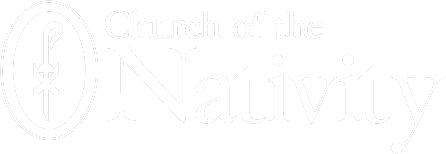On December 21 (the Winter Solstice), an unusually bright star appeared in the southwestern sky about an hour after sunset. Caused by the convergence of two planets, Jupiter and Saturn, this was a celestial event that occurs only once every 800 years. Could this have been the star in the East that the Magi followed as they sought the newly born king? Probably not, but it caught our attention and provided a welcome diversion from the pandemic as we prepared to celebrate the birth of our Savior.
The theme of light is central to our understanding of the Incarnation (Christmas) and Epiphany. Think of how many Christmas carols, hymns, and Biblical narratives celebrate light penetrating the darkness. Today we take it for granted; but, until modern times, darkness was total and dispelling it was no simple matter. So the metaphor of light in the darkness has had tremendous significance through the ages.
One source of light is the morning star. In the Old Testament we encounter it in Numbers (24:17), Job (38:7), and Isaiah (14:12). In the New Testament it appears in 2 Peter (1:19) and twice in Revelation (2:28 and 22:16). “I, Jesus, . . .am the root and the descendant of David, the bright morning star.” In Matthew’s story, it may have been the star that led the Magi to the manger.
The light of the Christmas star is celebrated in the great hymn, How Bright Appears the Morning Star (number 496/497 in our hymnal), written by Philipp Nicolai in 1597. Responding to a devastating plague in his village, Nicolai included both the poem and the tune in his book of meditations, “A Mirror of the Joys of Everlasting Life.” It became an instant hit and has been included in hymnals ever since. Composers and poets have based numerous works of art on its text and its tune.
I am especially fond of the chorus from Felix Mendelssohn’s unfinished oratorio, Christus, which combines the Numbers citation with Nicolai’s hymn. During my time as organist-choirmaster at Christ Church, Raleigh, this became a choral tradition for the Sunday closest to Epiphany:
Behold a star from Jacob shining,
And a scepter from Israel rising,
To reign in glory over the nations.
Like some bright morning star is he,
The promise of the coming day,
Beyond the night of sorrow.
Break forth, 0 Light!
We, our joyful hearts uplifting with thanksgiving,
Hail the brightness of Thy rising.
As I gazed at the Christmastime convergence of the planets on December 21, I couldn’t help but hum the tune of Nicolai’s hymn and to give thanks for the greatest gift of all, God incarnate in the newborn child. How may we follow that star today?
Let us celebrate the light of Christ that dispels the darkness. Blessings and peace to you in this new year.
David

